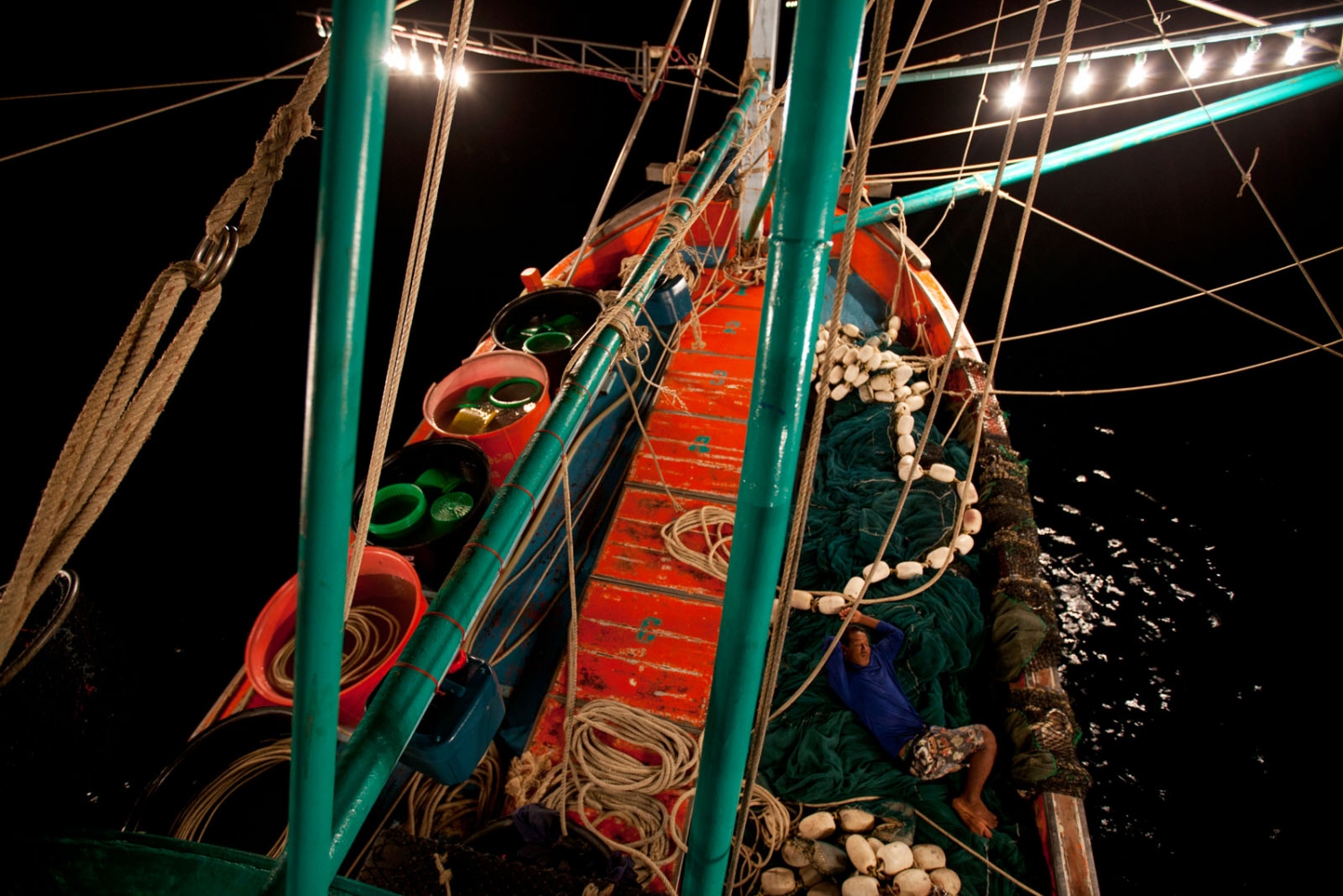
A Burmese fisherman takes a quick nap before starting work on a fishing net...
READ ON
A Burmese fisherman takes a quick nap before starting work on a fishing net as the boat leaves for the open ocean. Gulf of Thailand, Thailand
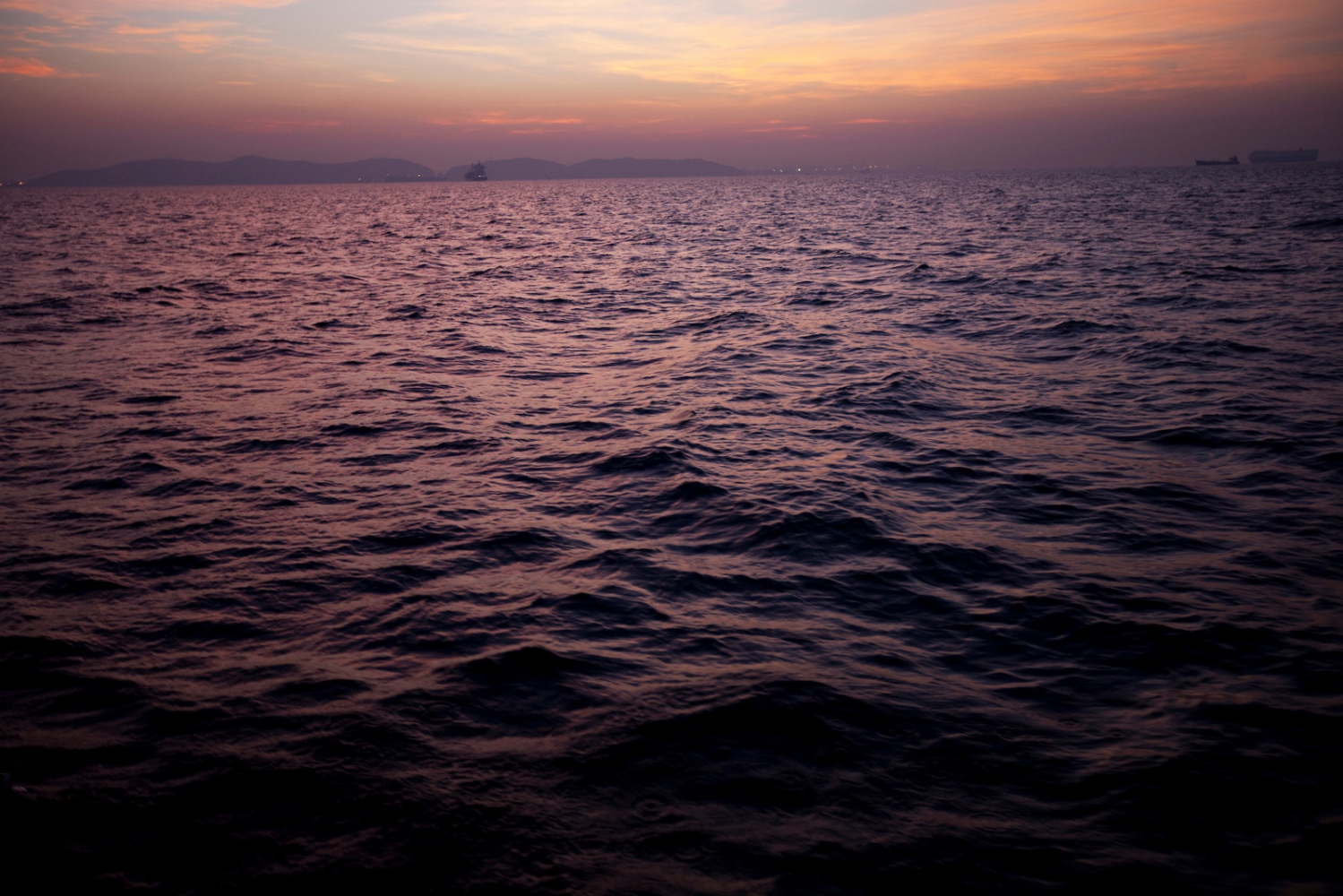
The Gulf of Thailand at dawn seen from a fishing trawler as it returns to shore. Rayong, Thailand
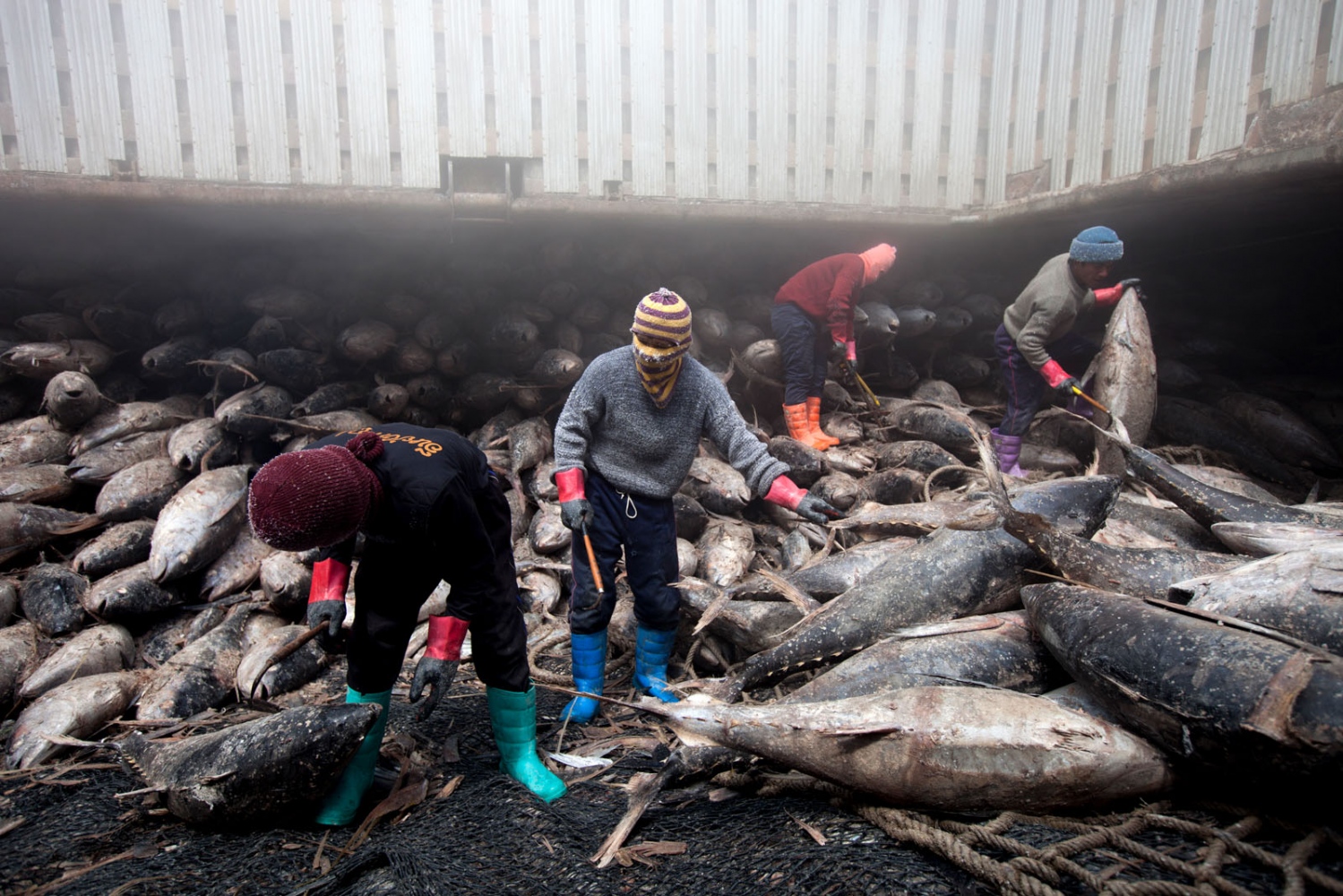
Thai workers pull tuna into nets in the hold, where the temperature is minus...
READ ON
Thai workers pull tuna into nets in the hold, where the temperature is minus 22 degrees Celsius. The large ship is docked just outside Bangkok and will spend one week unloading hundres of tonnes of tuna. Each frozen skipjack carcass weighs about 40 kilograms (88 pounds); one ton of skipjack fetches about $1,600 on the wholesale market. Samut Prakan, Thailand
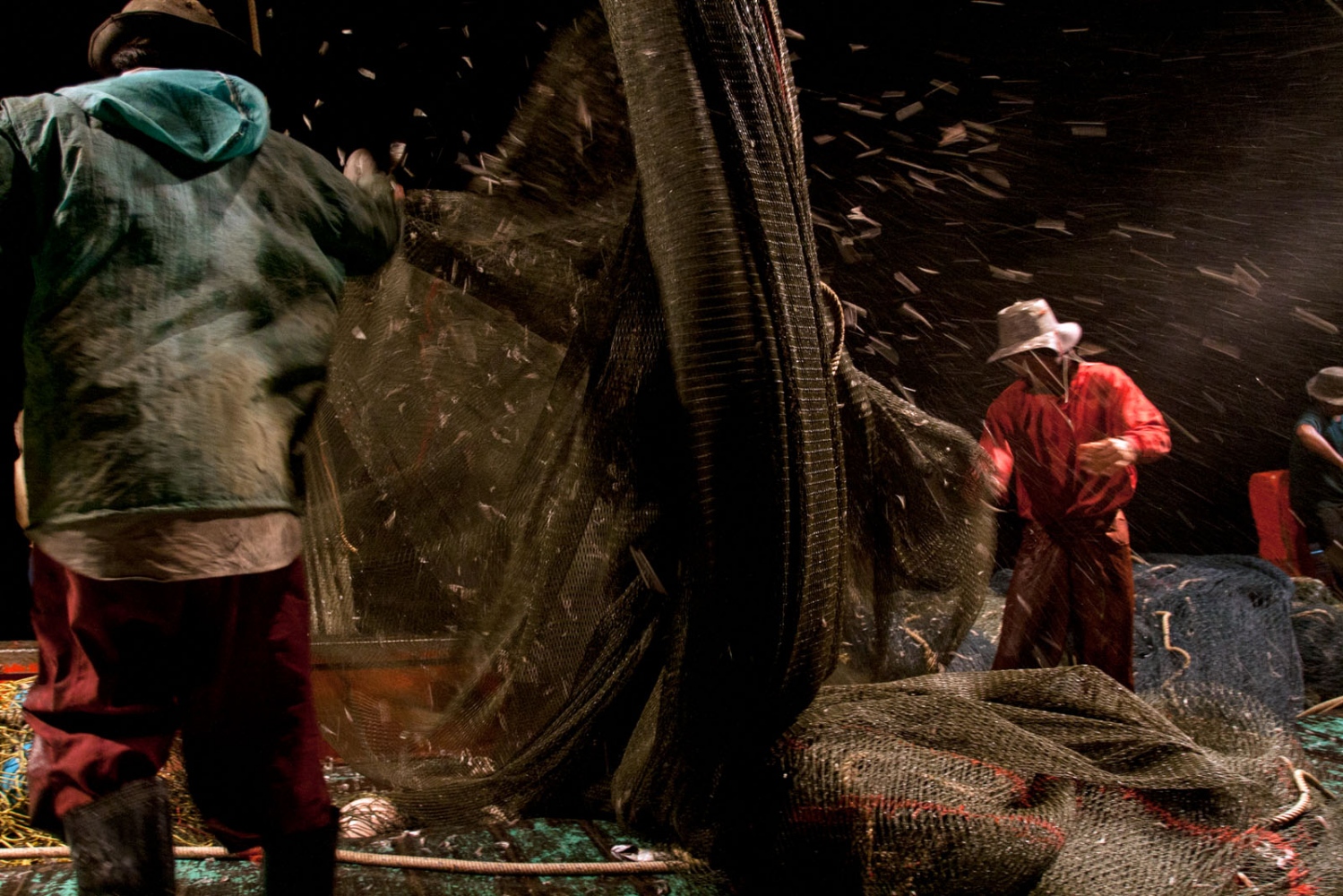
Cambodian fishermen empty a large trawler net that has been dragged all night...
READ ON
Cambodian fishermen empty a large trawler net that has been dragged all night catching everything in its path. A 3 kilometer nursery zone exists around the whole coastal region of Thailand, but this is often ignored as punishments are lenient and as a result the catches have more than halved in recent years. Chonburi, Thailand
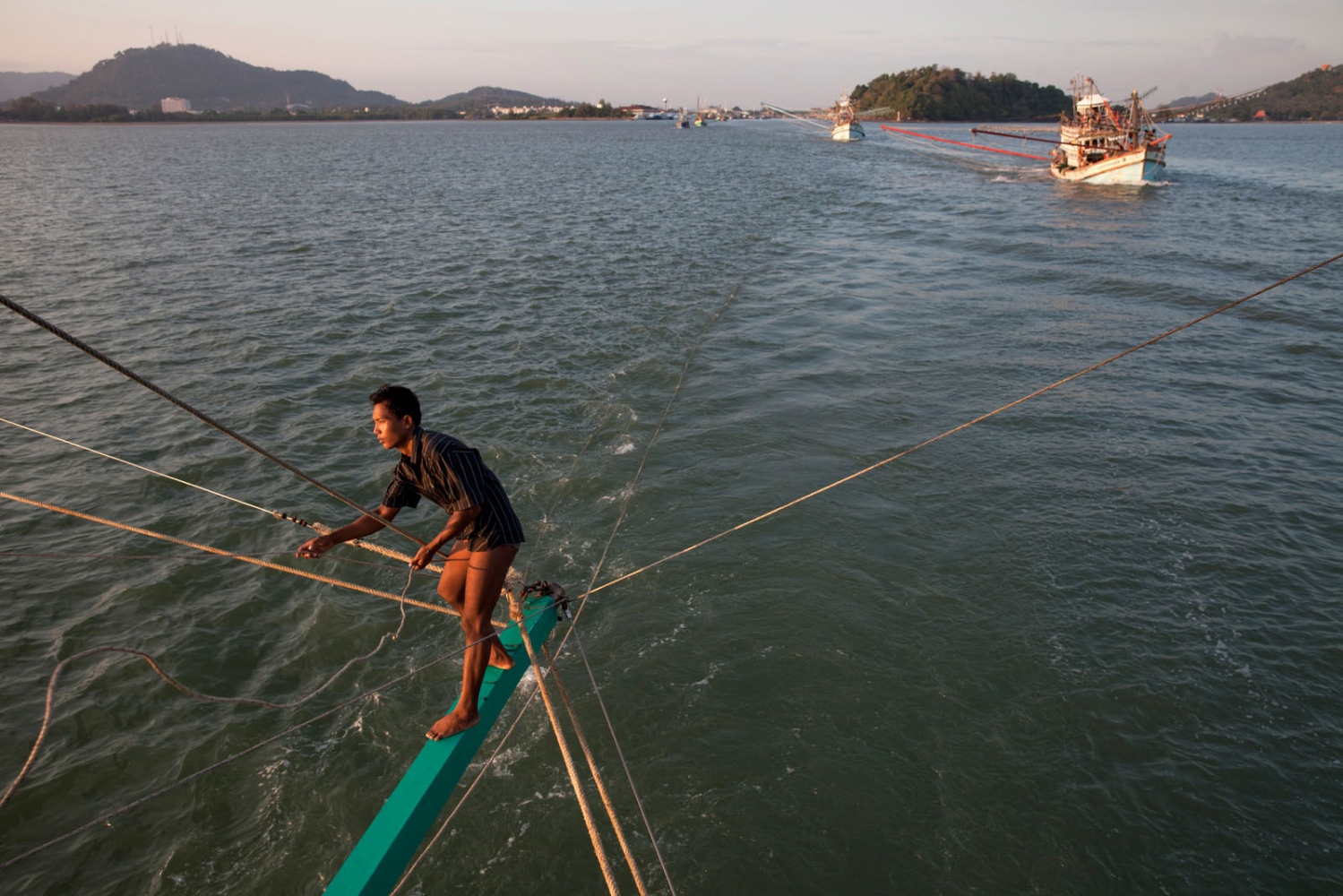
Thai fishing trawler boats leave for the ocean in the late afternoon and will...
READ ON
Thai fishing trawler boats leave for the ocean in the late afternoon and will return the following morning. Phuket Island, Thailand
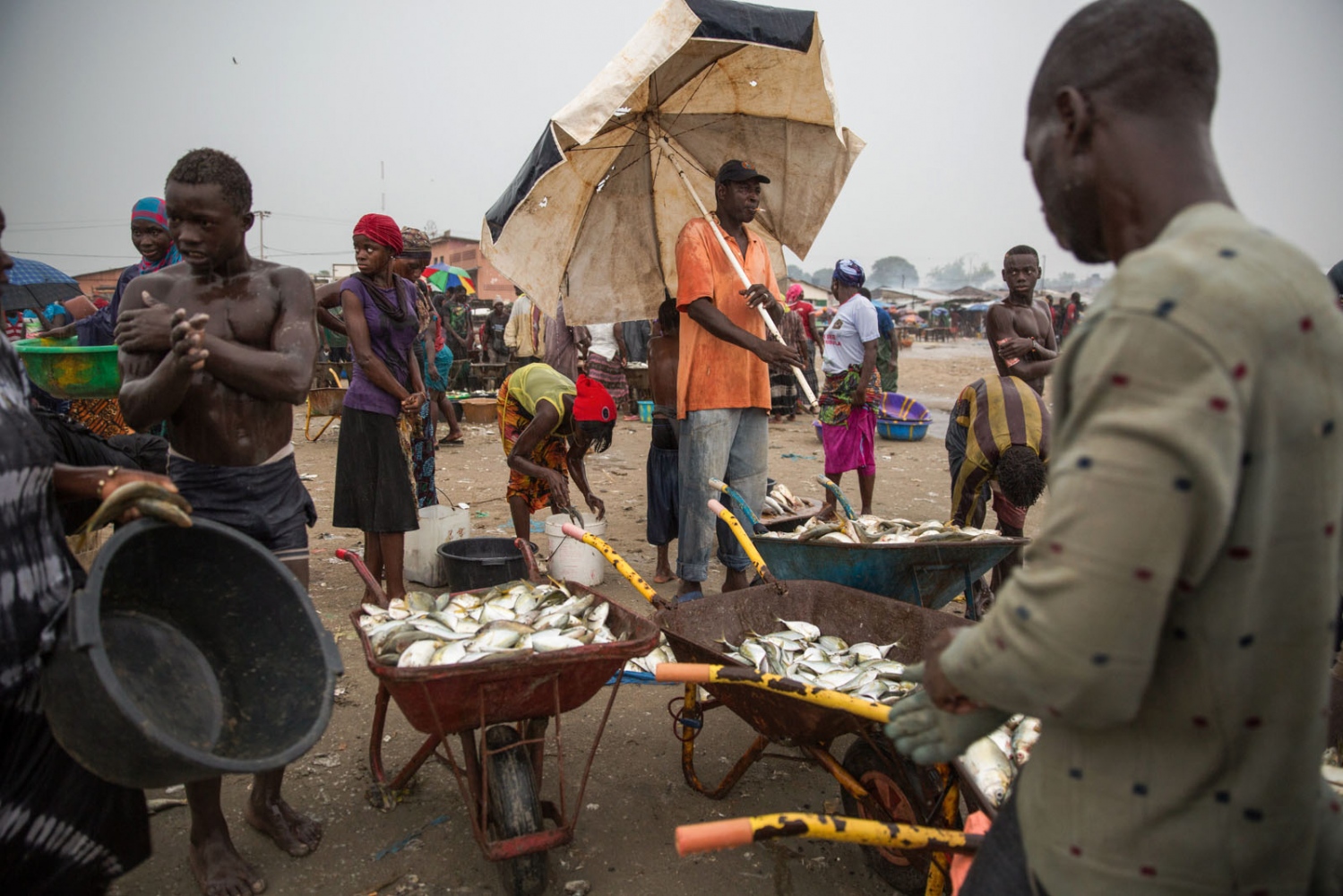
Middle men, vendors and buyers all congregate at Gambia's largest fish...
READ ON
Middle men, vendors and buyers all congregate at Gambia's largest fish market of Tanji every morning and afternoon after small African pirogues bring fish back to shore from the Atlantic. Tanji, The Gambia
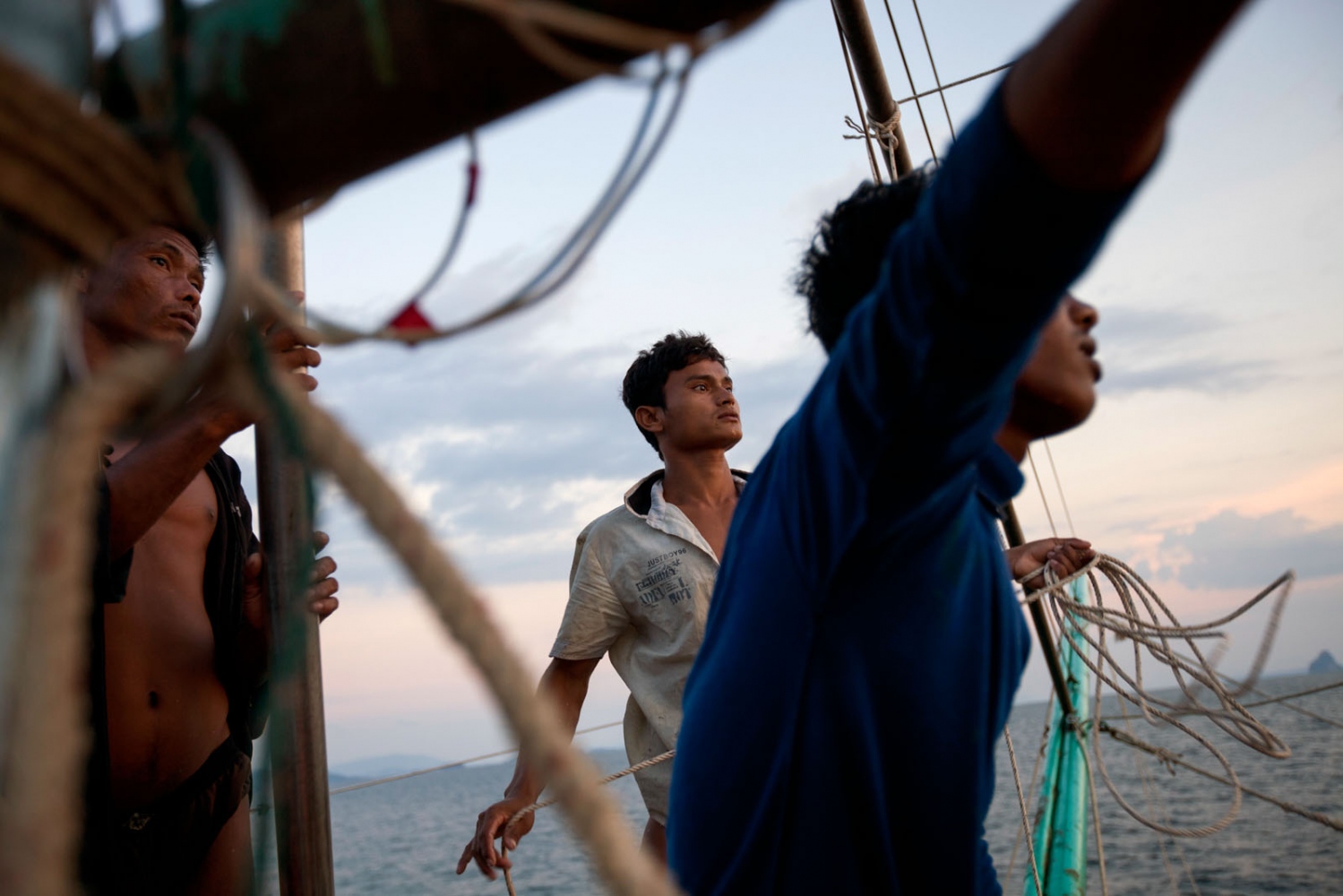
Burmese fishermen set off for a night on a Thai fishing trawler. Thailand is...
READ ON
Burmese fishermen set off for a night on a Thai fishing trawler. Thailand is the third largest exporter of fish in the world after China and the US. Its fishing fleet is vast, but years of unregulated trawling has causes incredible damage to fish stocks. Phuket Island, Thailand
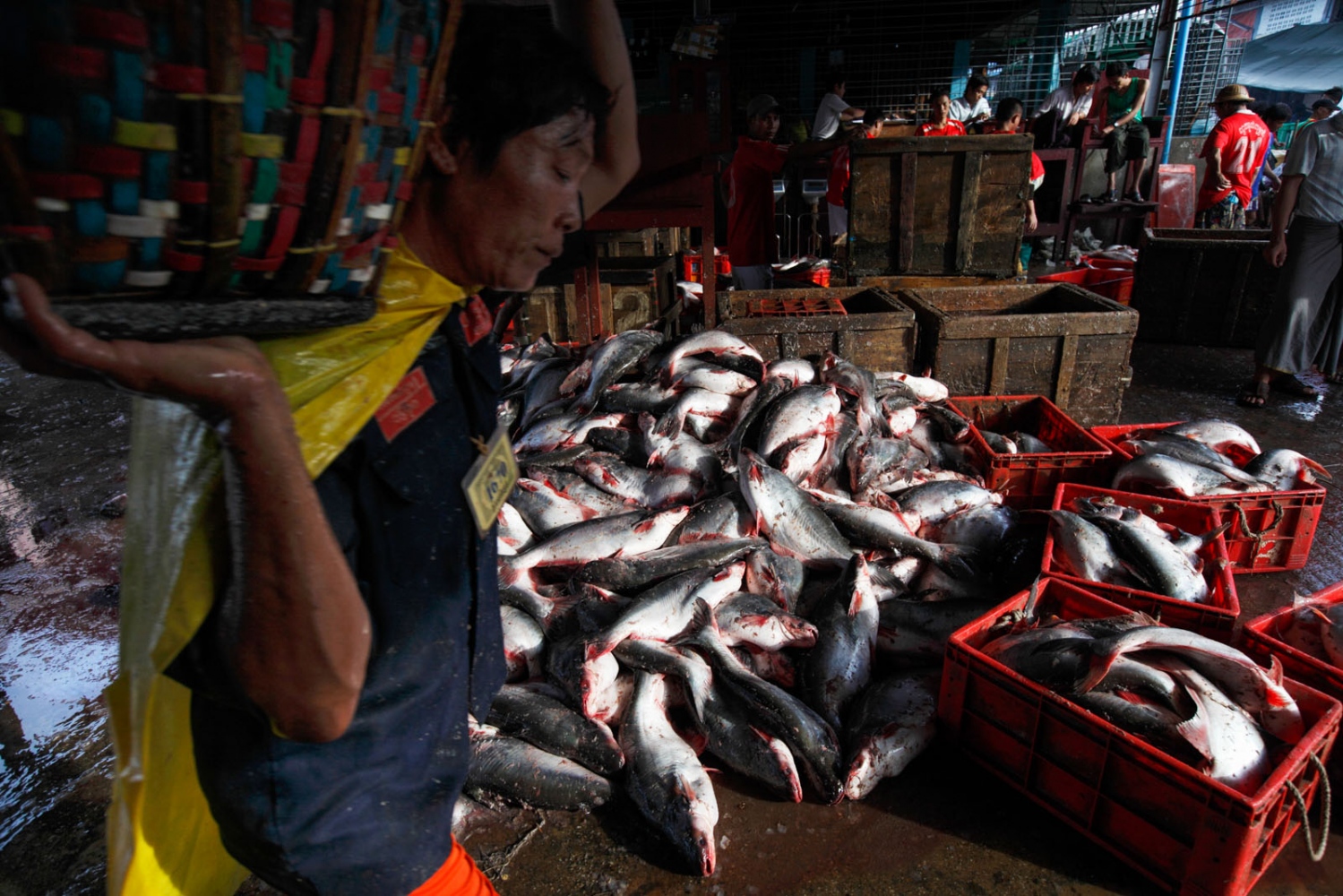
Tonnes of fish are unloaded from boats, sold, packaged then reloaded on to...
READ ON
Tonnes of fish are unloaded from boats, sold, packaged then reloaded on to trucks for distribution everyday at Yangon's largest fish market on the outskirts of the city. Yangon, Myanmar
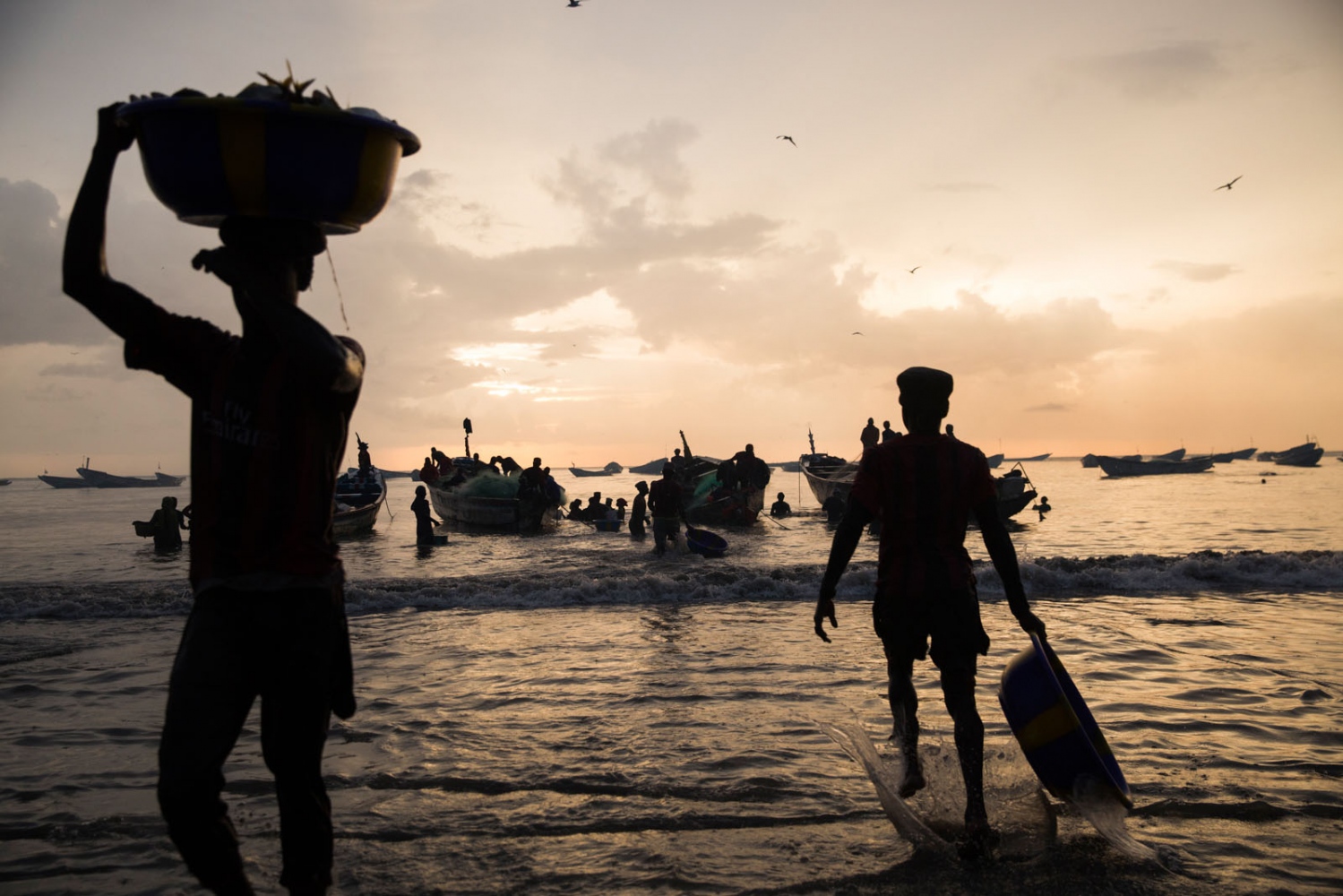
Men carrying fish in basin's on their heads bring todays catch to the...
READ ON
Men carrying fish in basin's on their heads bring todays catch to the beach at Tanji's fish market. Every morning and afternoon African pirogues bring fish back to shore from the Atlantic. The fish are then immediately bought by customers and middle-men creating chaotic scenes involving hundreds of people. But trawling by large foreign vessels of The Gamboia's coast has lead to a reduced catch for these local fishermen. Tanji, The Gambia
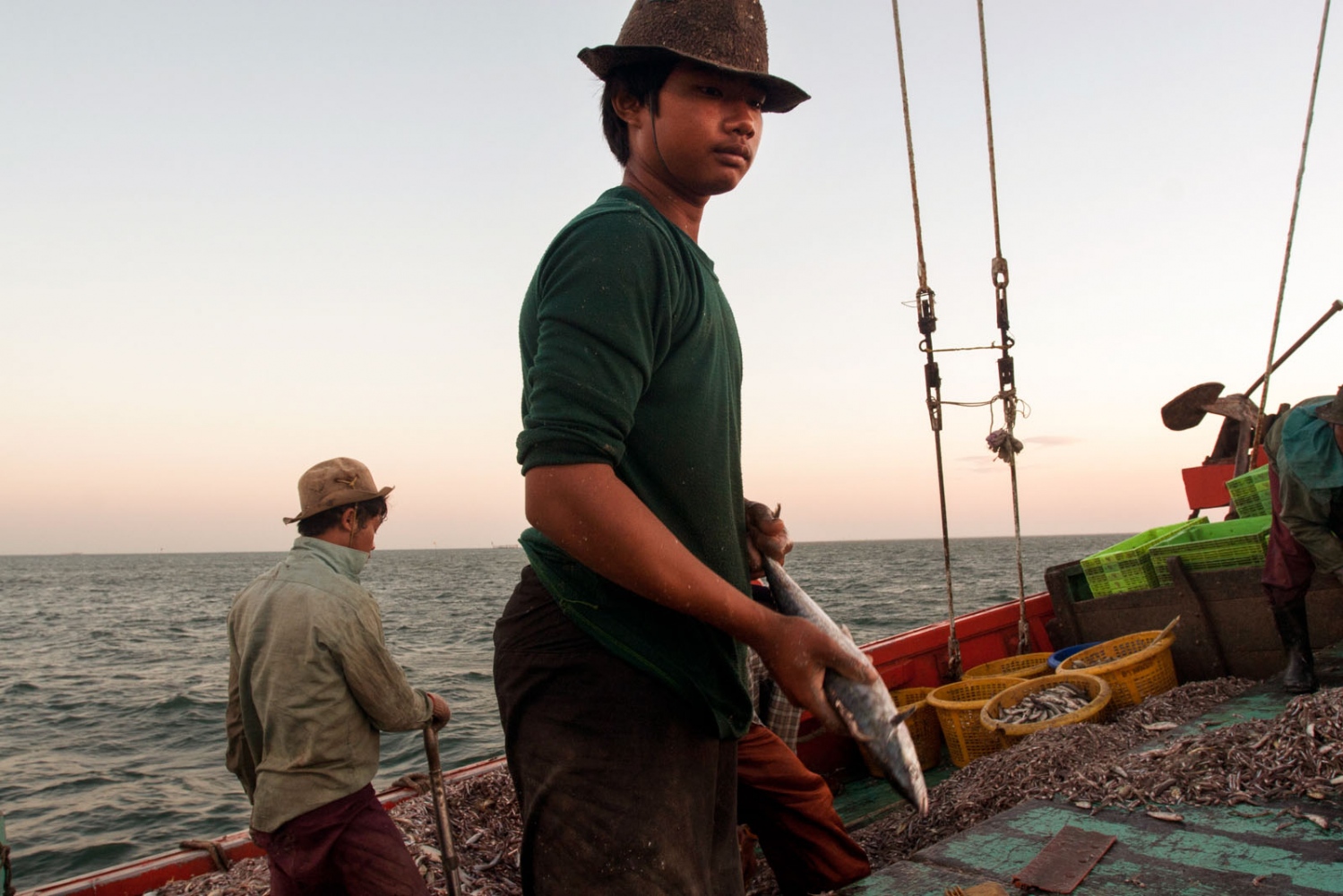
Cambodian fishermen sort out the catch as the trawler boat races to shore...
READ ON
Cambodian fishermen sort out the catch as the trawler boat races to shore after a night of dragging the net. He holds one of the few fish caught, the majority of the catch were very small fish. A 3 kilometer nursery zone exists around the whole coastal region of Thailand, but this is often ignored as punishments are lenient and as a result the catches have more than halved in recent years. Chonburi, Thailand
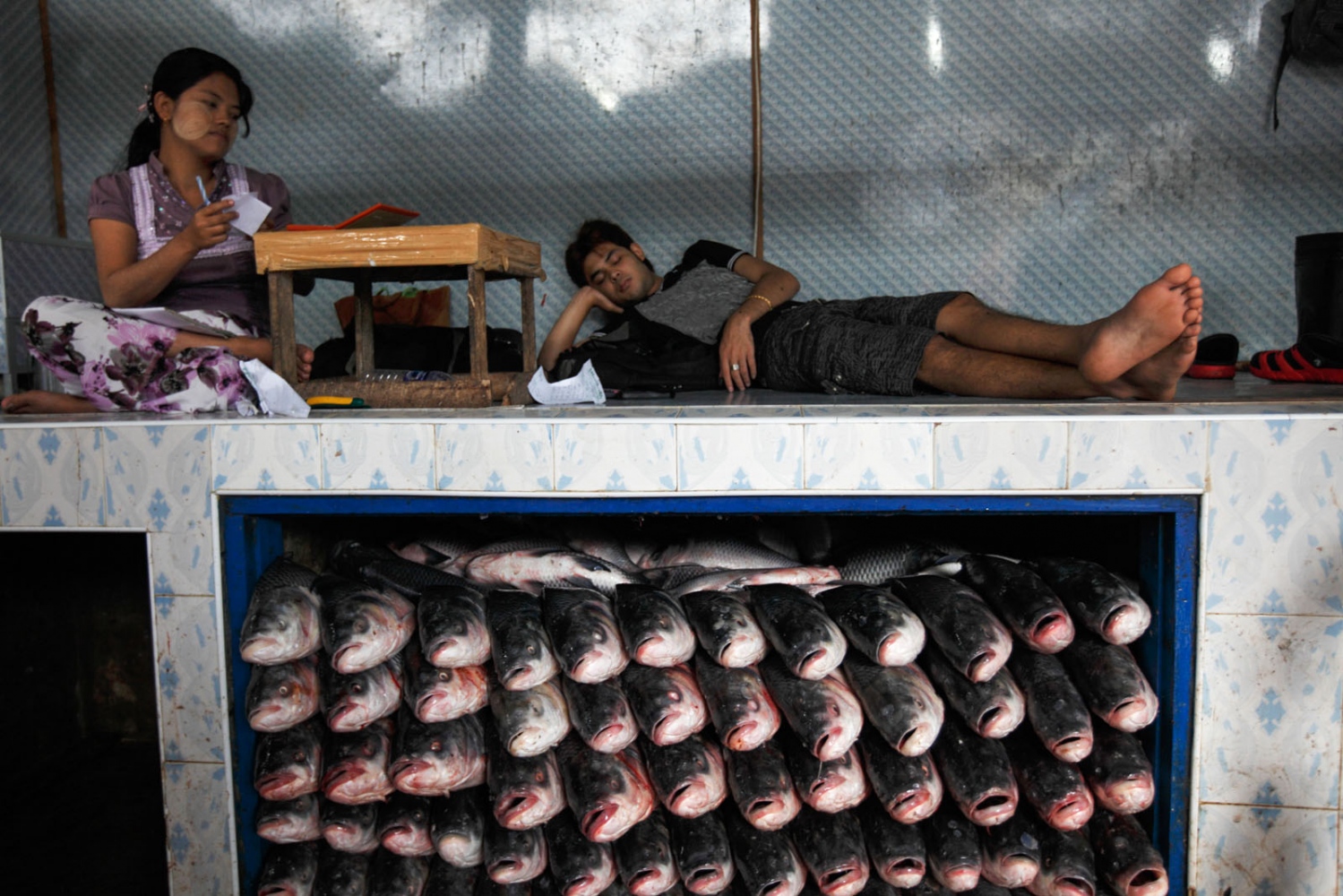
A husband and wife team selling recently caught fish rest above todays...
READ ON
A husband and wife team selling recently caught fish rest above todays catch at Yangon's largest fish market on the outskirts of the city. Yangon, Myanmar
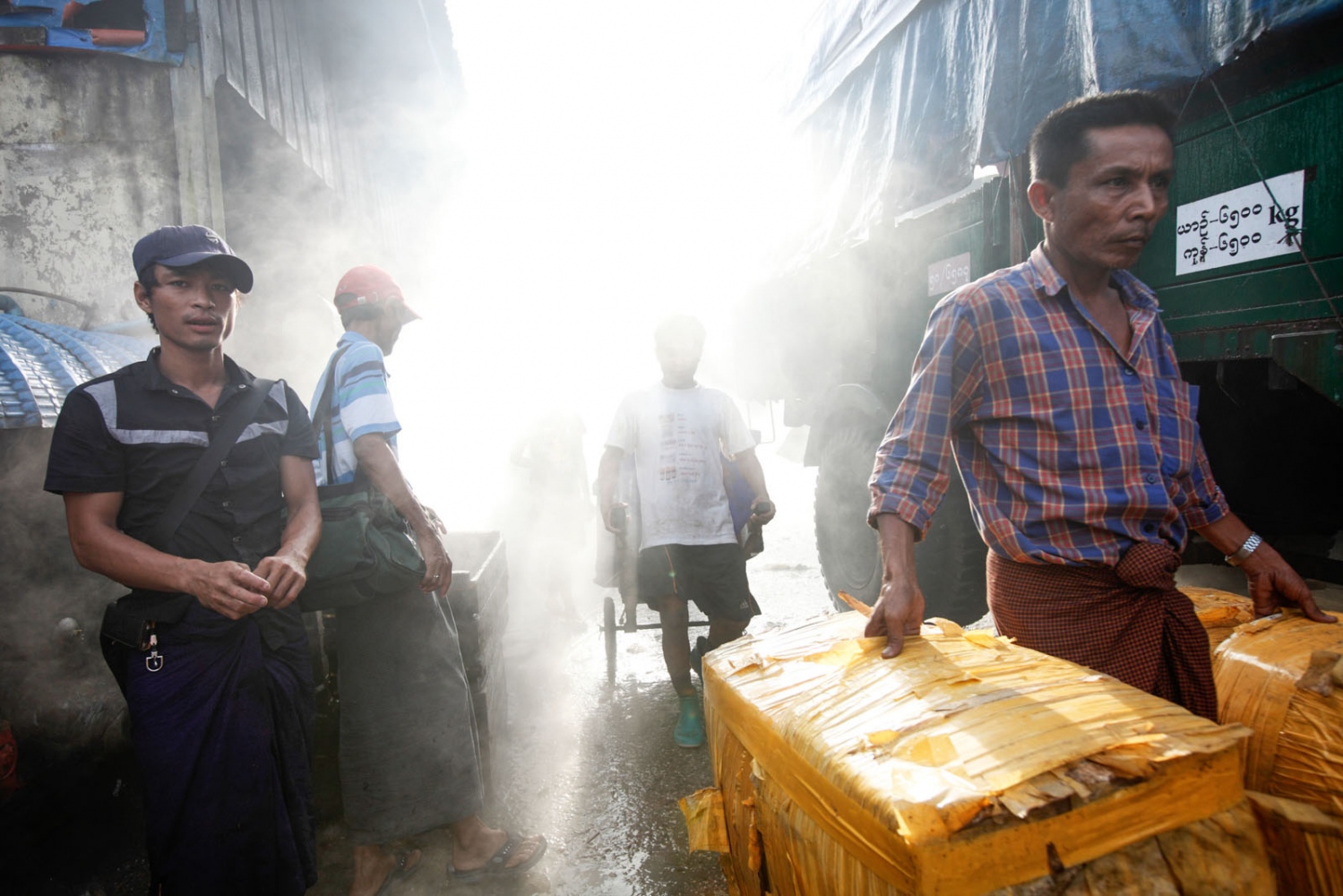
Men pulling carts ladden with ice, carrying boxes of fish and shouting out...
READ ON
Men pulling carts ladden with ice, carrying boxes of fish and shouting out prices all leads to chaotic scenes at Yangon's largest fish market on the outskirts of the city. Yangon, Myanmar
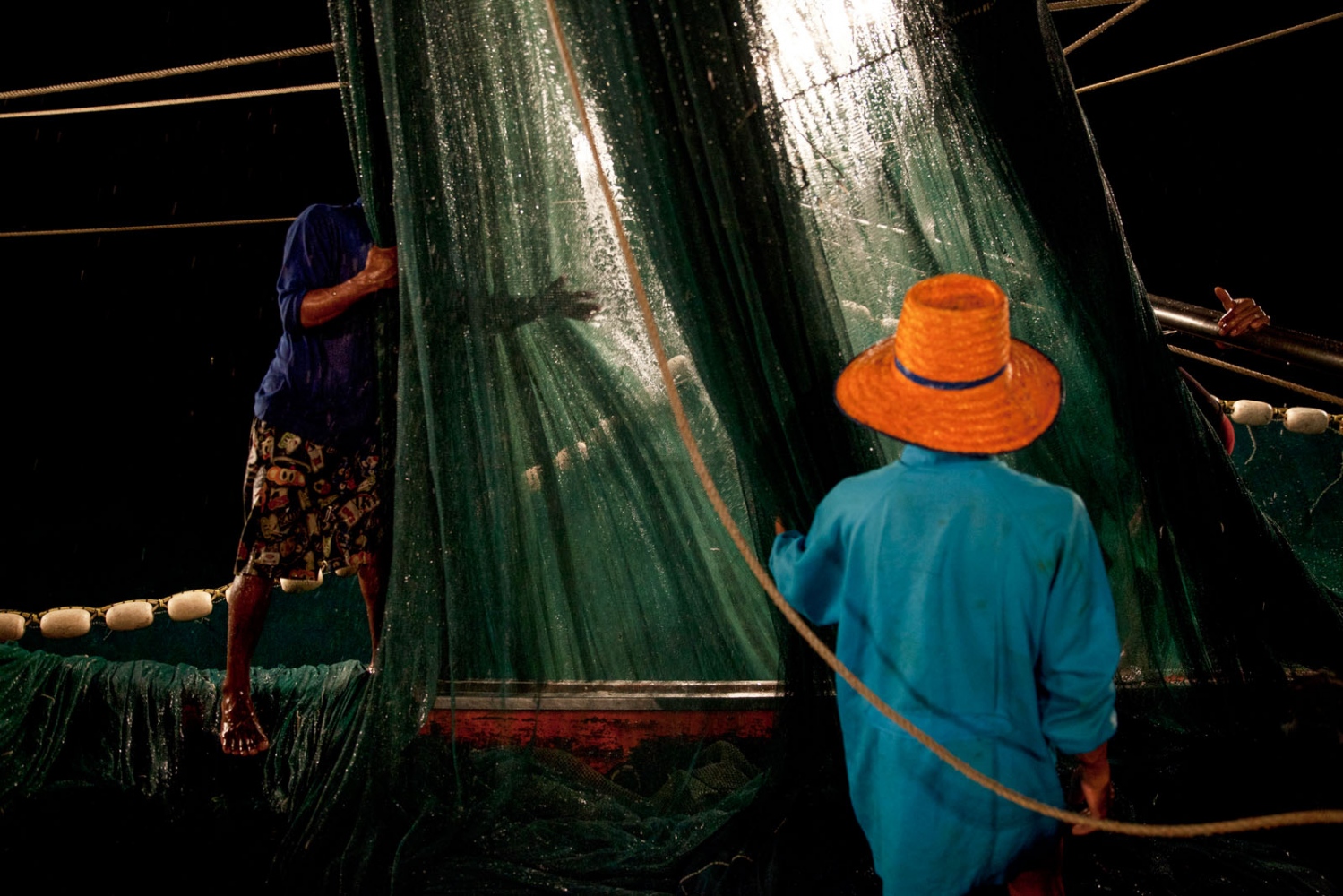
Burmese fishermen working all night on a Thai fishing trawler boat off the...
READ ON
Burmese fishermen working all night on a Thai fishing trawler boat off the coast of Phuket pull in the net. Gulf of Thailand
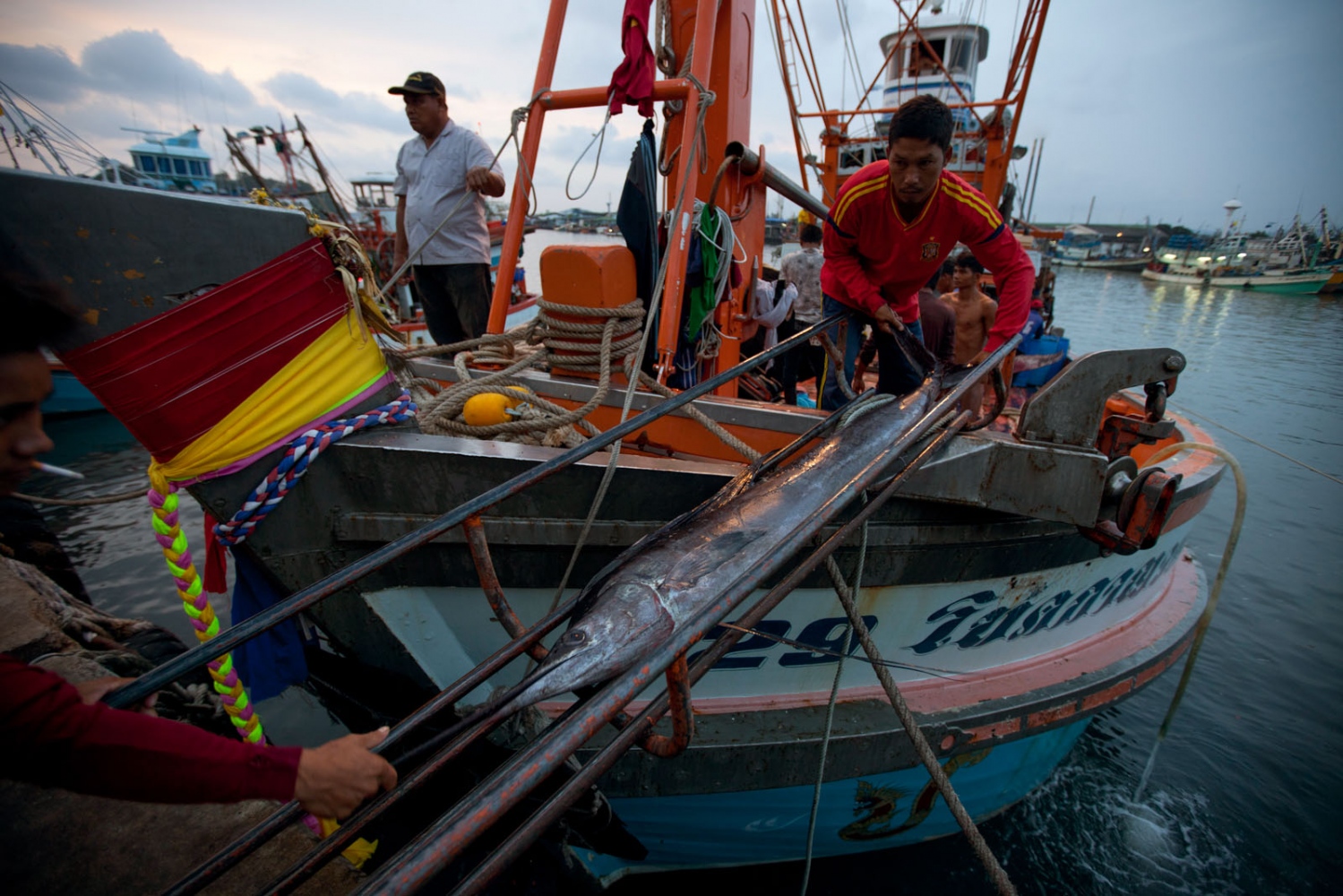
A catch of large sail fish is being unloaded from a Thai fishing trawler by...
READ ON
A catch of large sail fish is being unloaded from a Thai fishing trawler by Burmese fishermen at Phuket's main fishing port. Phuket, Thailand
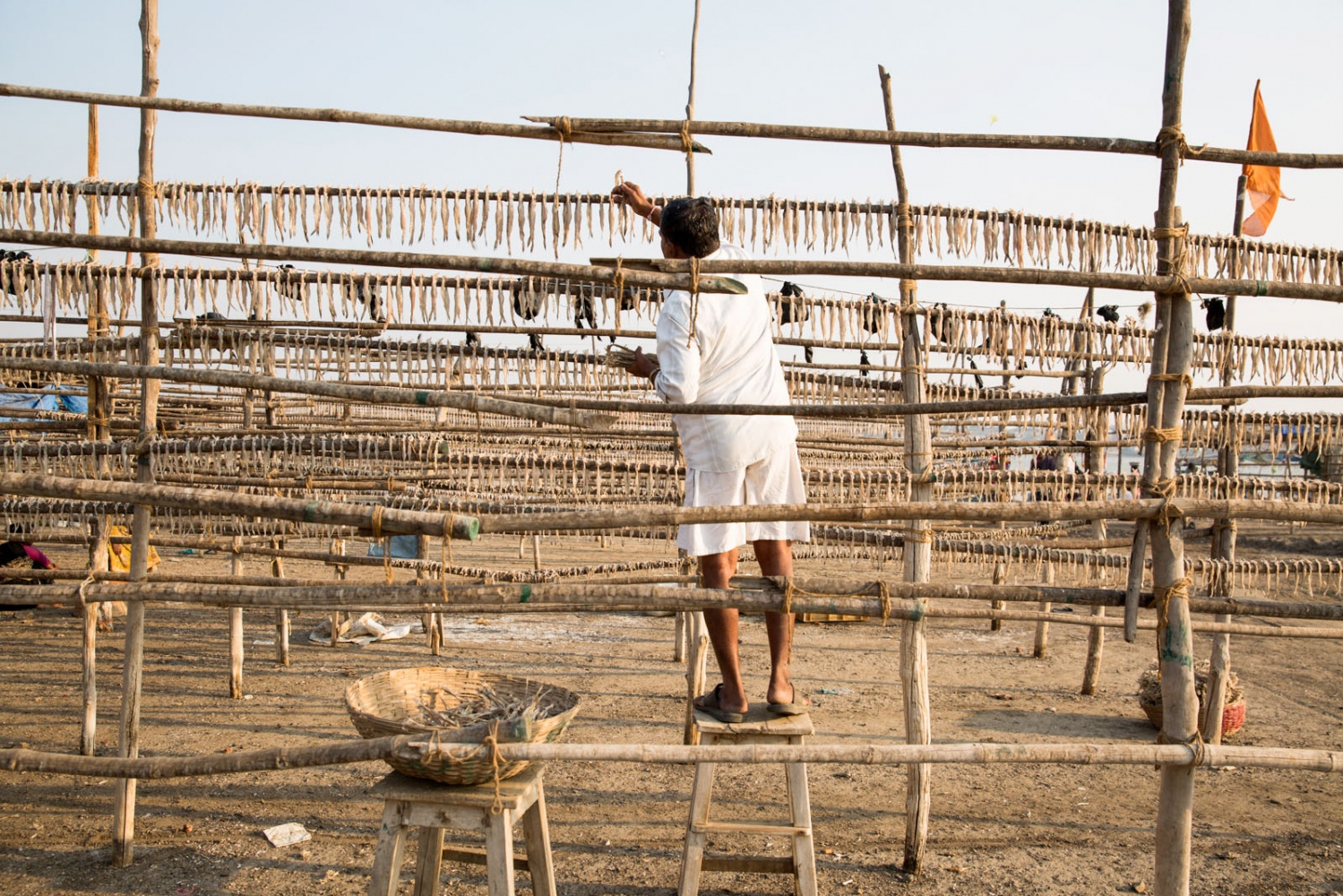
A local man hangs fish on long racks to dry them in the sun. This area on...
READ ON
A local man hangs fish on long racks to dry them in the sun. This area on India's west coast is famous for its dried fish. Dahanu, India
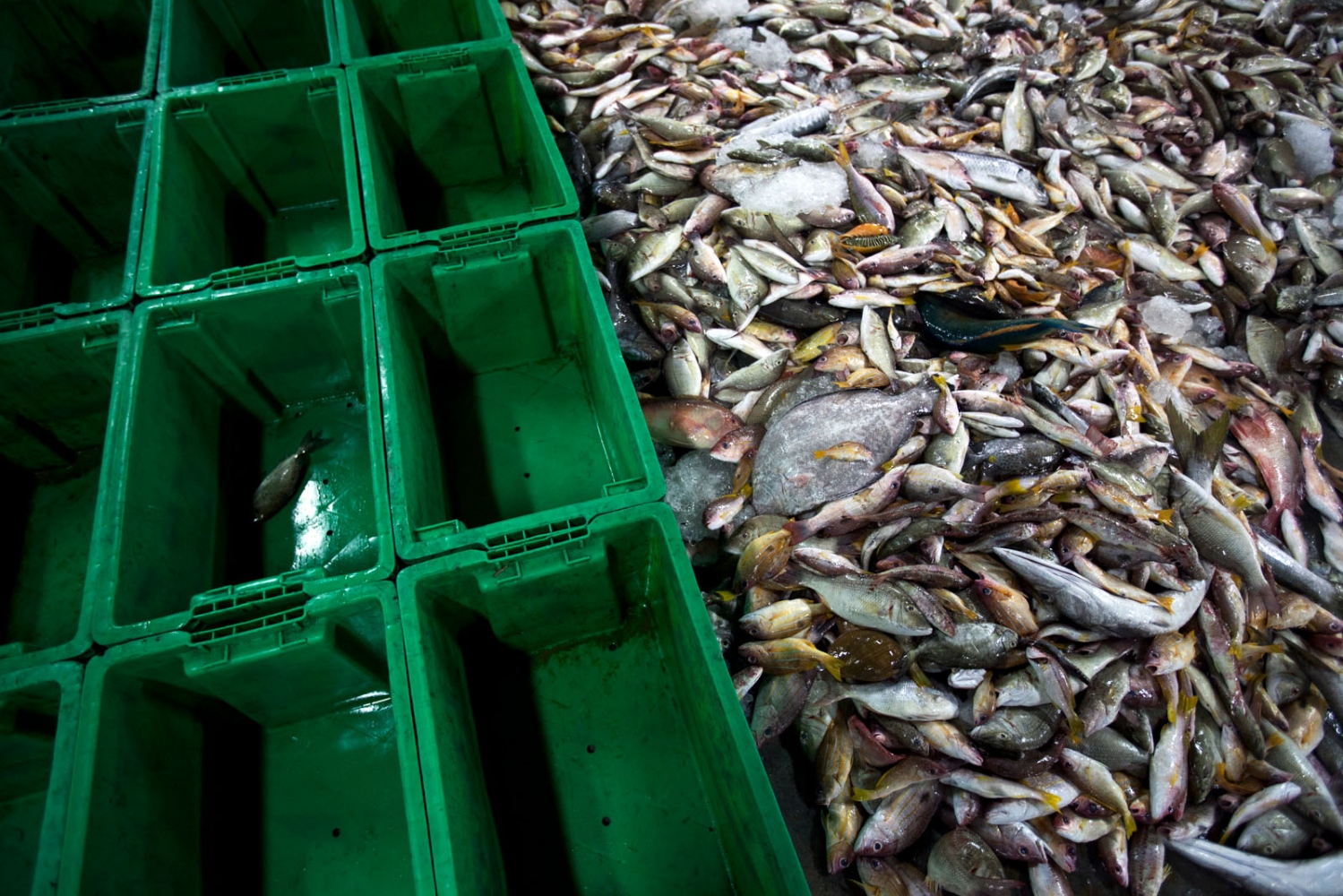
Fish are unloaded from large Thai fishing trawlers and sorted ready to be...
READ ON
Fish are unloaded from large Thai fishing trawlers and sorted ready to be sold at Phukets main harbour. Phuket, Thailand

A Cambodian fishermen sorts the net, clinging on to the side of this Thai...
READ ON
A Cambodian fishermen sorts the net, clinging on to the side of this Thai trawler boat as it ploughs through the darkness. Thailand is the third largest exporter of fish in the world after China and the US. Its fishing fleet is vast, but years of unregulated trawling has causes incredible damage to fish stocks. Chonburi, Thailand
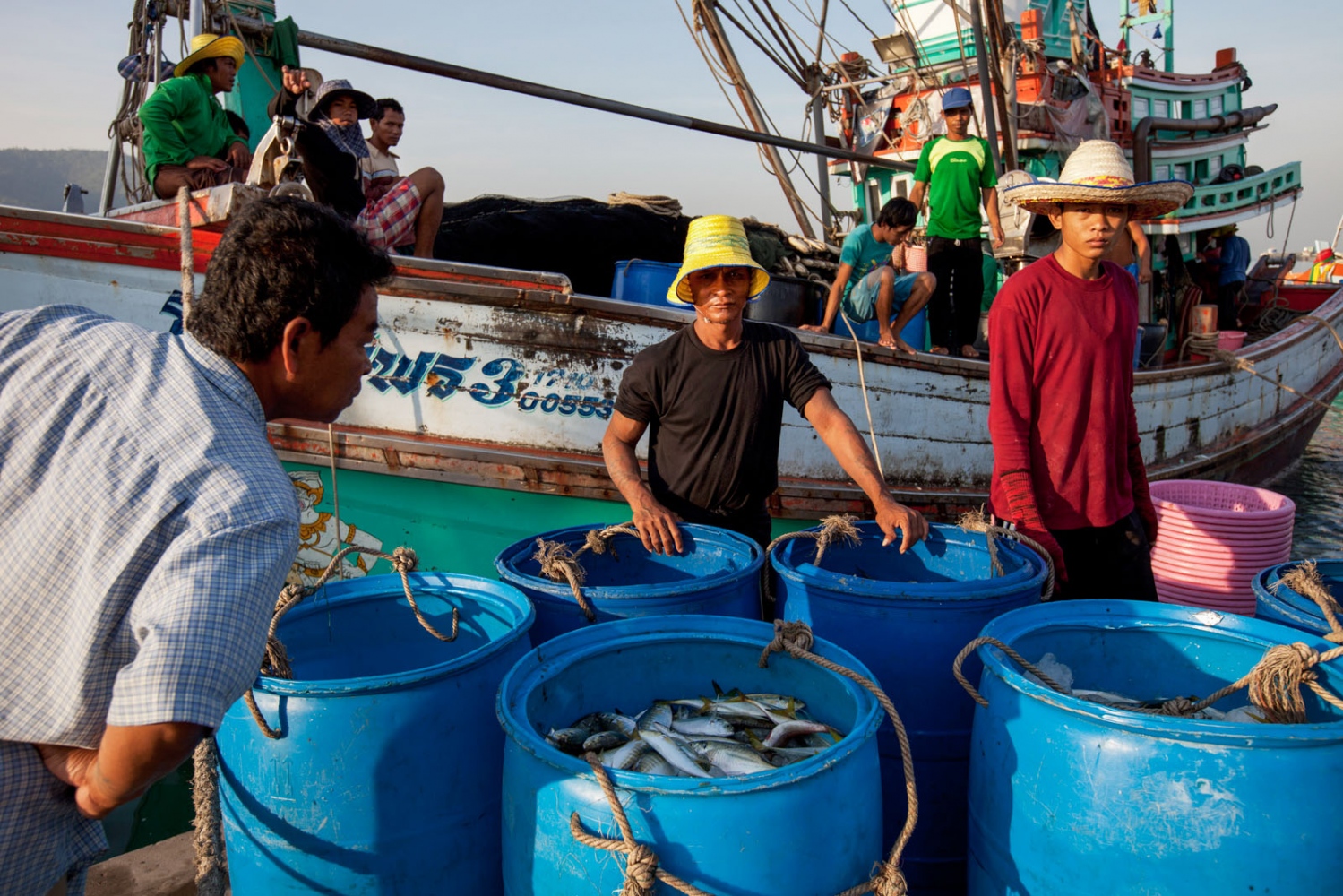
A large fishing trawler unloads is catch caught the night before. This...
READ ON
A large fishing trawler unloads is catch caught the night before. This ammount of fish comes from just one boat and with tens of thousands of boats the Gulf of Thailand's fish stocks have been seriously depleted. Silapacha, Thailand
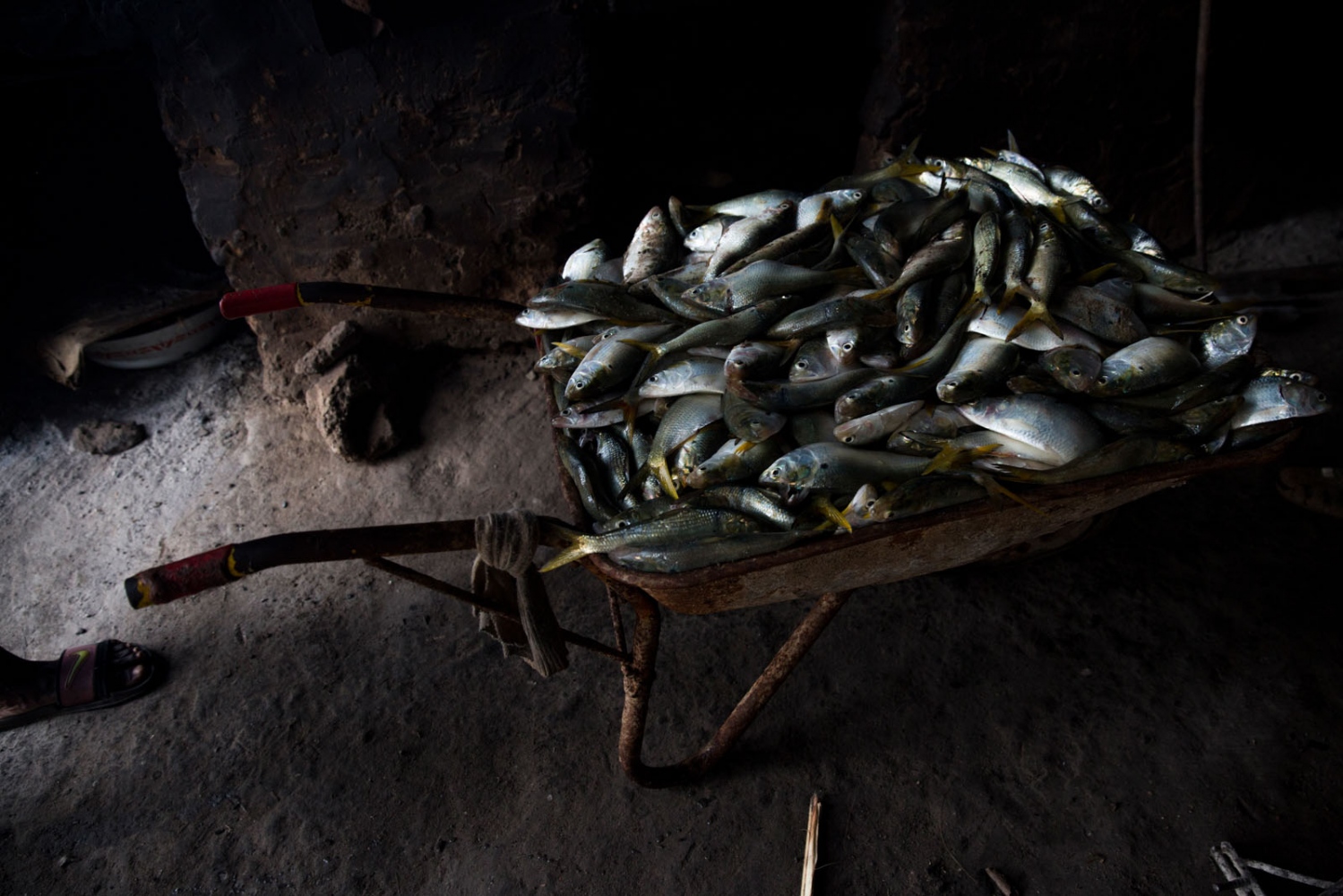
Behind Gambia's largest fish market at Tanji is a collection of fish...
READ ON
Behind Gambia's largest fish market at Tanji is a collection of fish smoking buildings. For centuries fish have been smoked here and either sold domestically or exported to other parts of North Africa, particularly Nigeria. Caught in the Atlantic, the fish are smoked for days after which they can be kept without refrigeration for months. Tanji, The Gambia
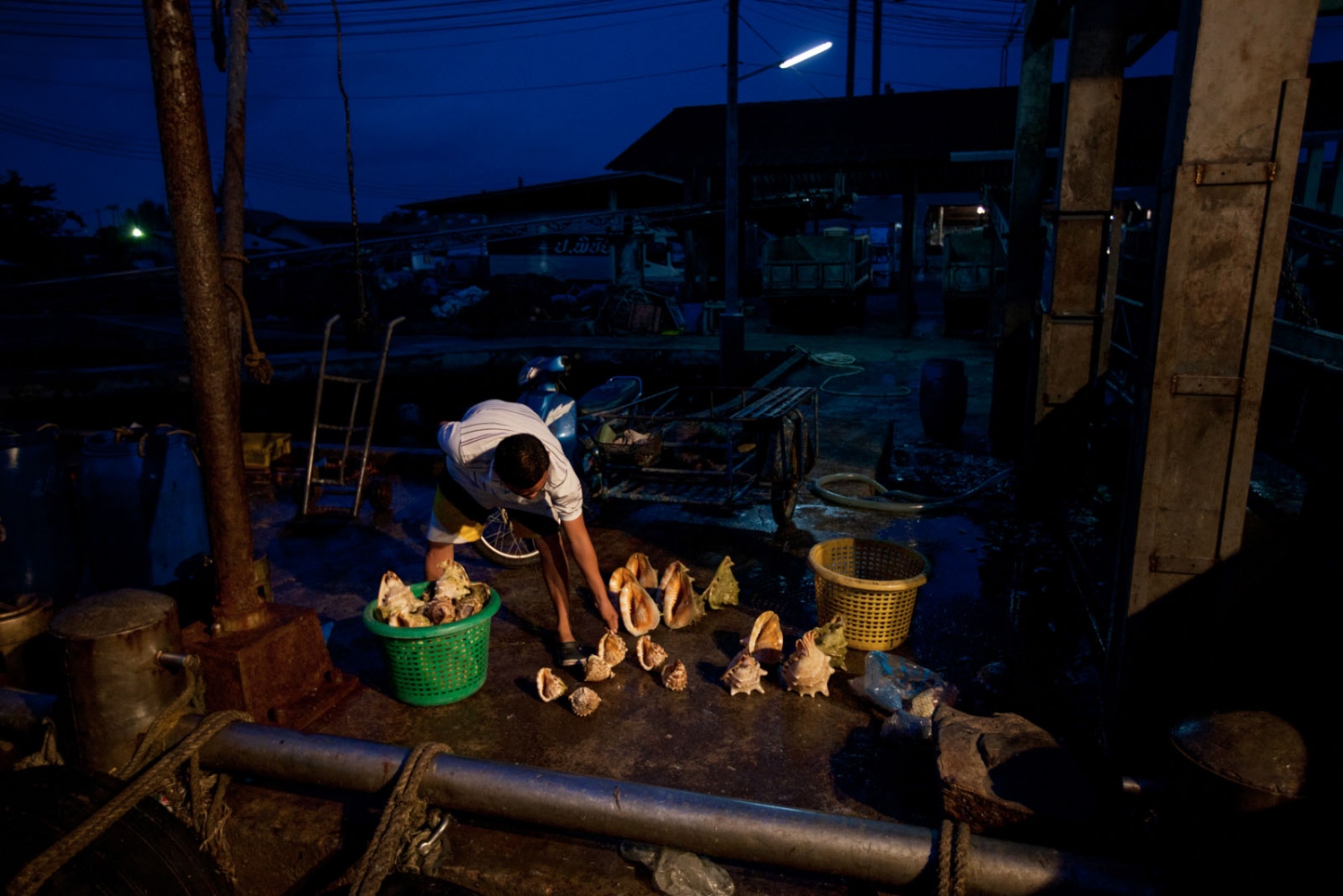
Not only fish are caught by net dragging trawlers but also shells. This man...
READ ON
Not only fish are caught by net dragging trawlers but also shells. This man came to purchase the shells caught up in the nets of a Thai trawler to sell as souvenirs to tourists, Phuket, Thailand

On the beach at Tanji is Gambia's largest fish market. Every morning and...
READ ON
On the beach at Tanji is Gambia's largest fish market. Every morning and afternoon African pirogues bring fish back to shore from the Atlantic. The fish are then immediately bought by customers and middle-men creating chaotic scenes involving hundreds of people. Tanji, The Gambia
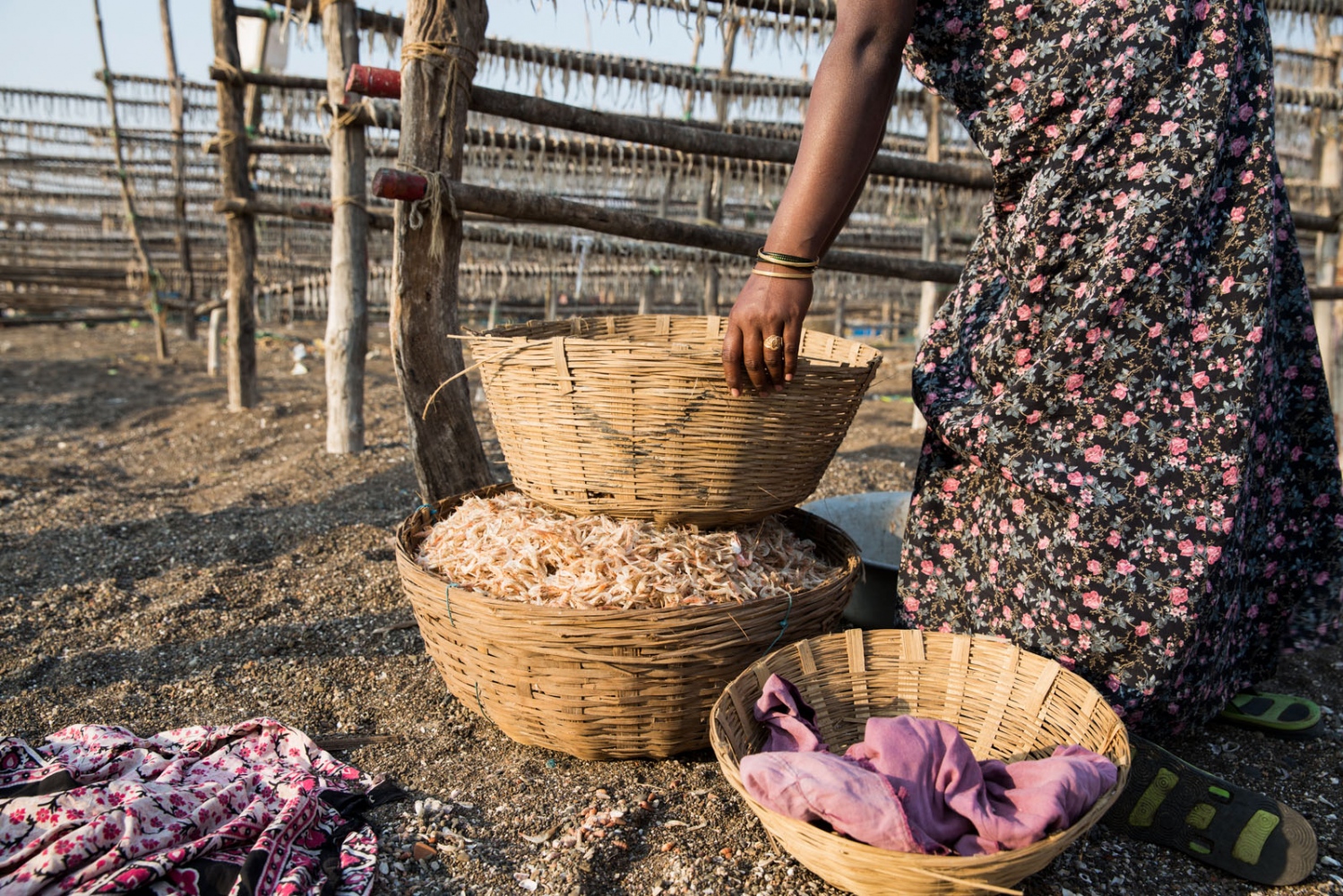
An Indian women prepares shrimp to dry in the sun in a remote fishing...
READ ON
An Indian women prepares shrimp to dry in the sun in a remote fishing community of India's west coast. Dahanu, India
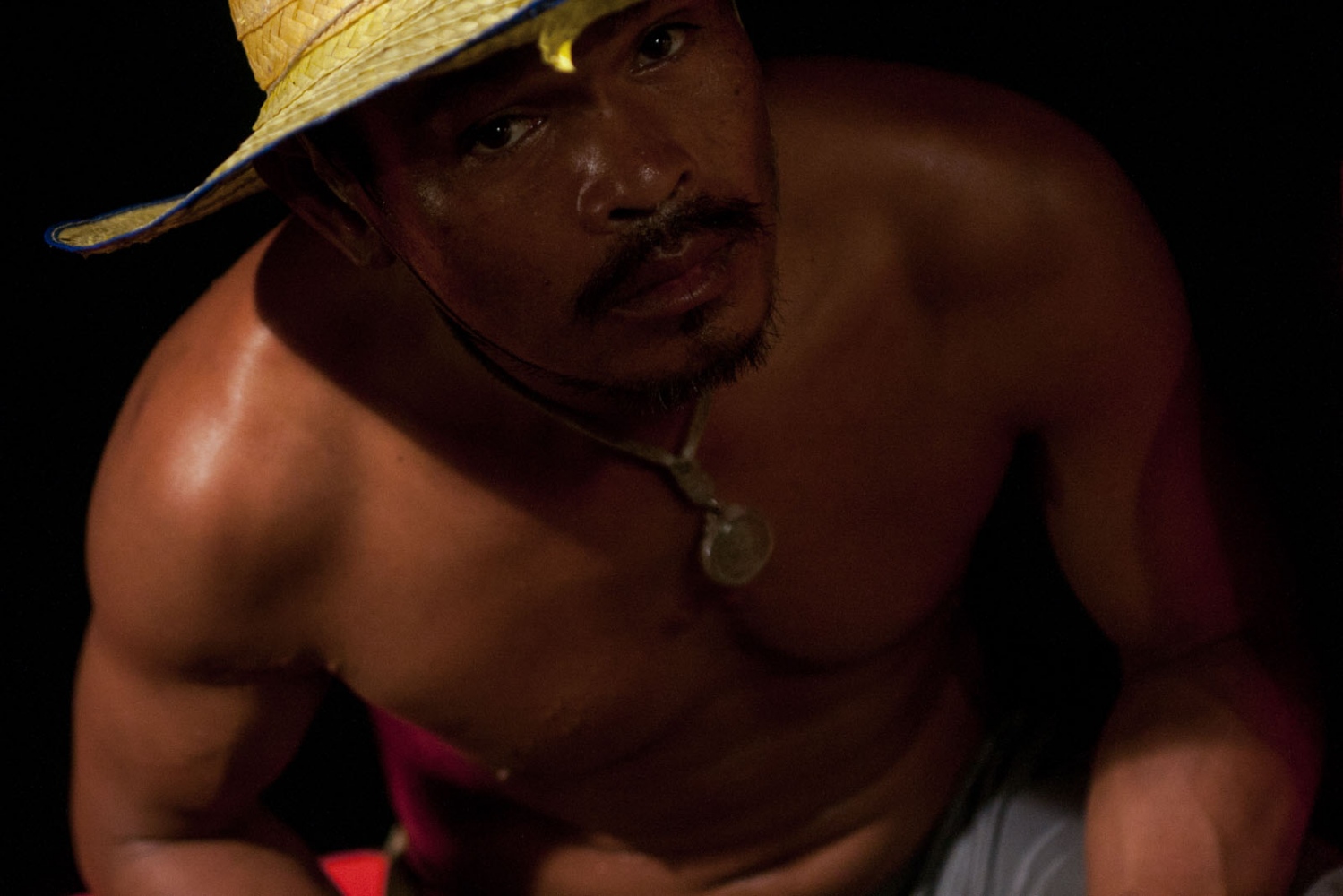
The portrait of a Cambodian fisherman on a night trawler. Chonburi, Thailand
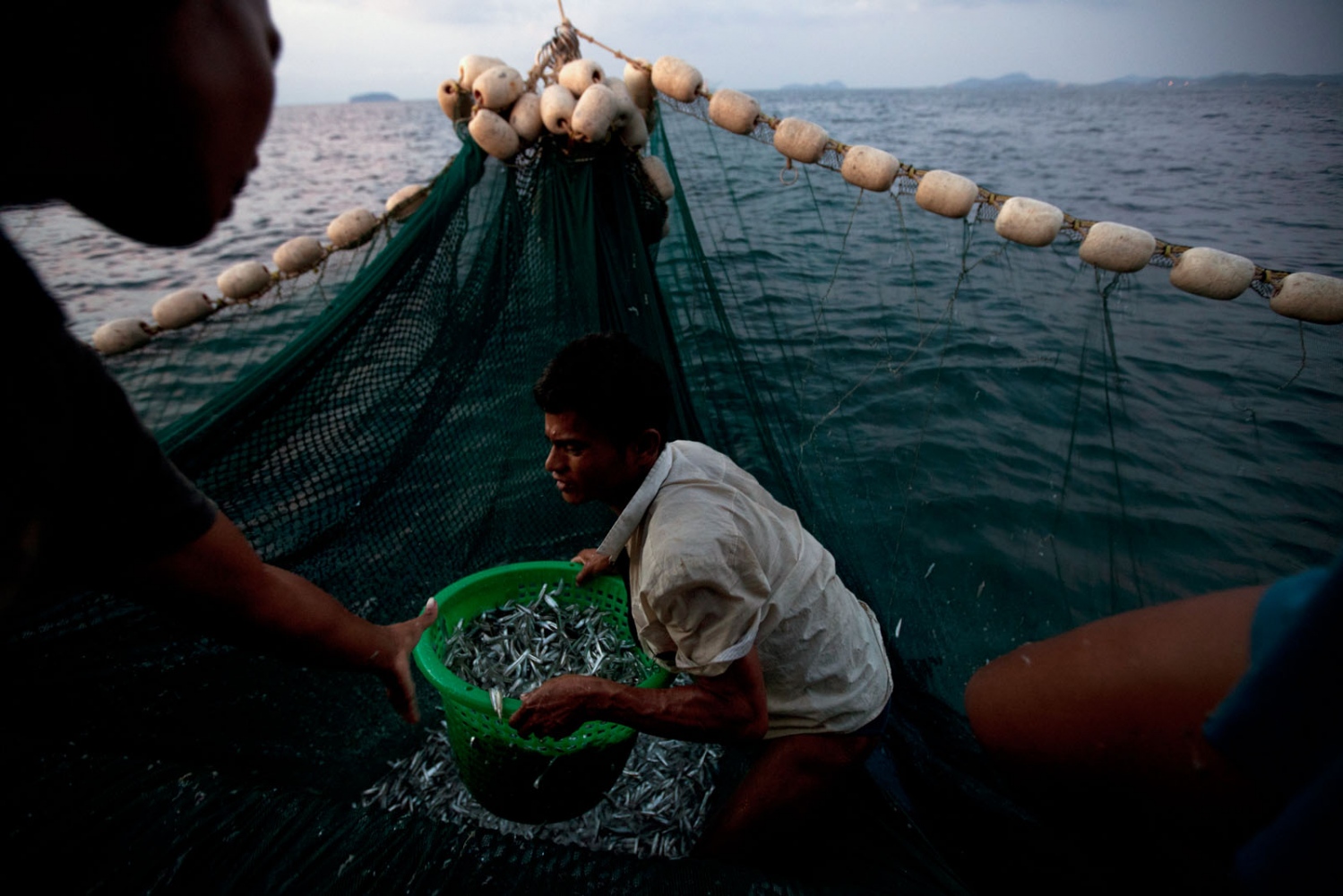
Burmese fishermen working all night on a Thai trawler boat off the coast of...
READ ON
Burmese fishermen working all night on a Thai trawler boat off the coast of Phuket. Thailand is the third largest exporter of fish in the world after China and the US. Its fishing fleet is vast, but years of unregulated trawling has causes incredible damage to fish stocks. A 3 kilometer nursery zone exists around the whole coastal region, but this is often ignored as punishments are lenient. Most fishing is done at night when trawlers, varying in size, leave for the darkness of the sea returning in the morning with their catch that in many cases has more than halved in recent years. Gulf of Thailand
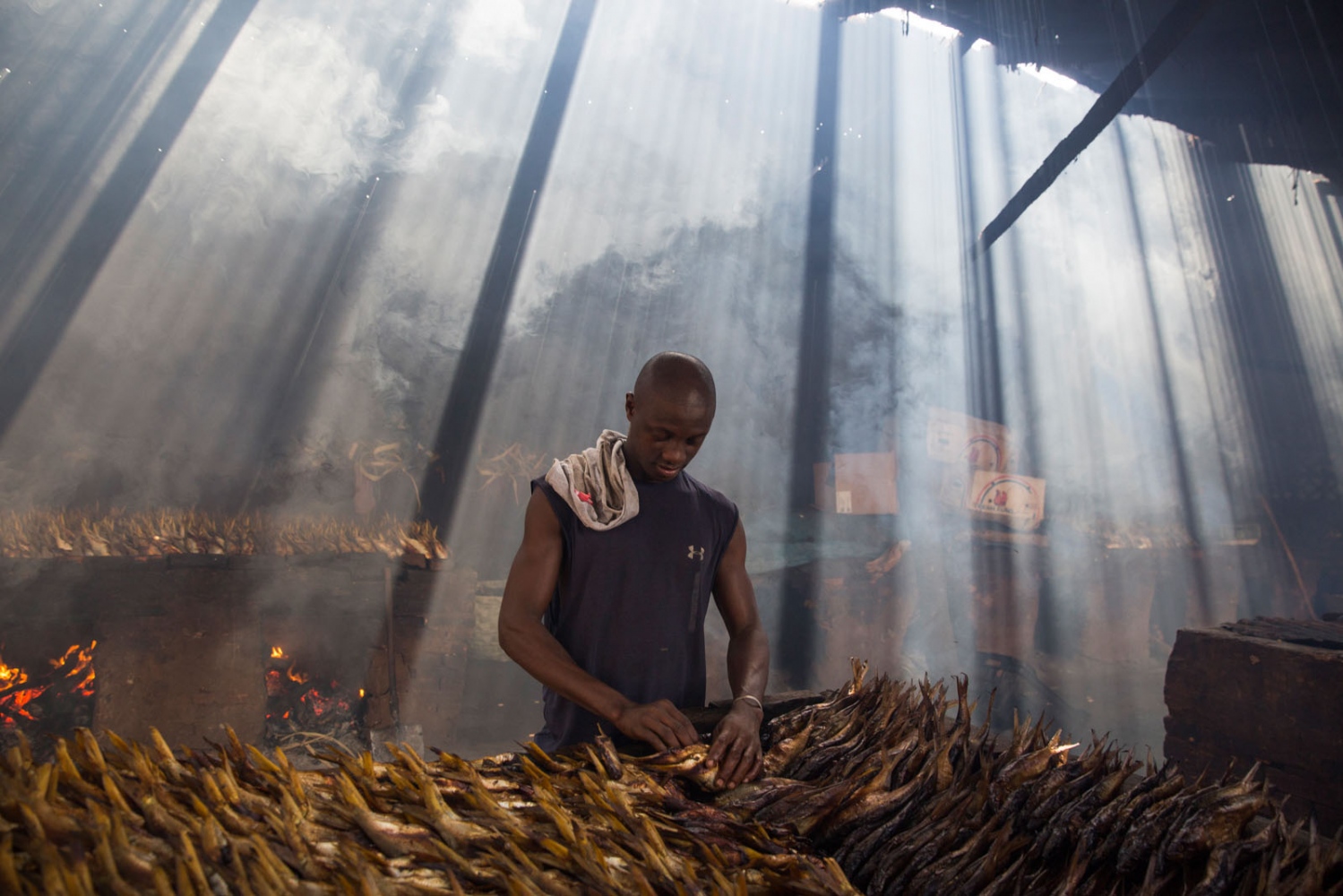
Behind Gambia's largest fish market at Tanji is a collection of fish...
READ ON
Behind Gambia's largest fish market at Tanji is a collection of fish smoking buildings. For centuries fish have been smoked here and either sold domestically or exported to other parts of North Africa, particularly Nigeria. Caught in the Atlantic, the fish are smoked for days after which they can be kept without refrigeration for months. Tanji, The Gambia
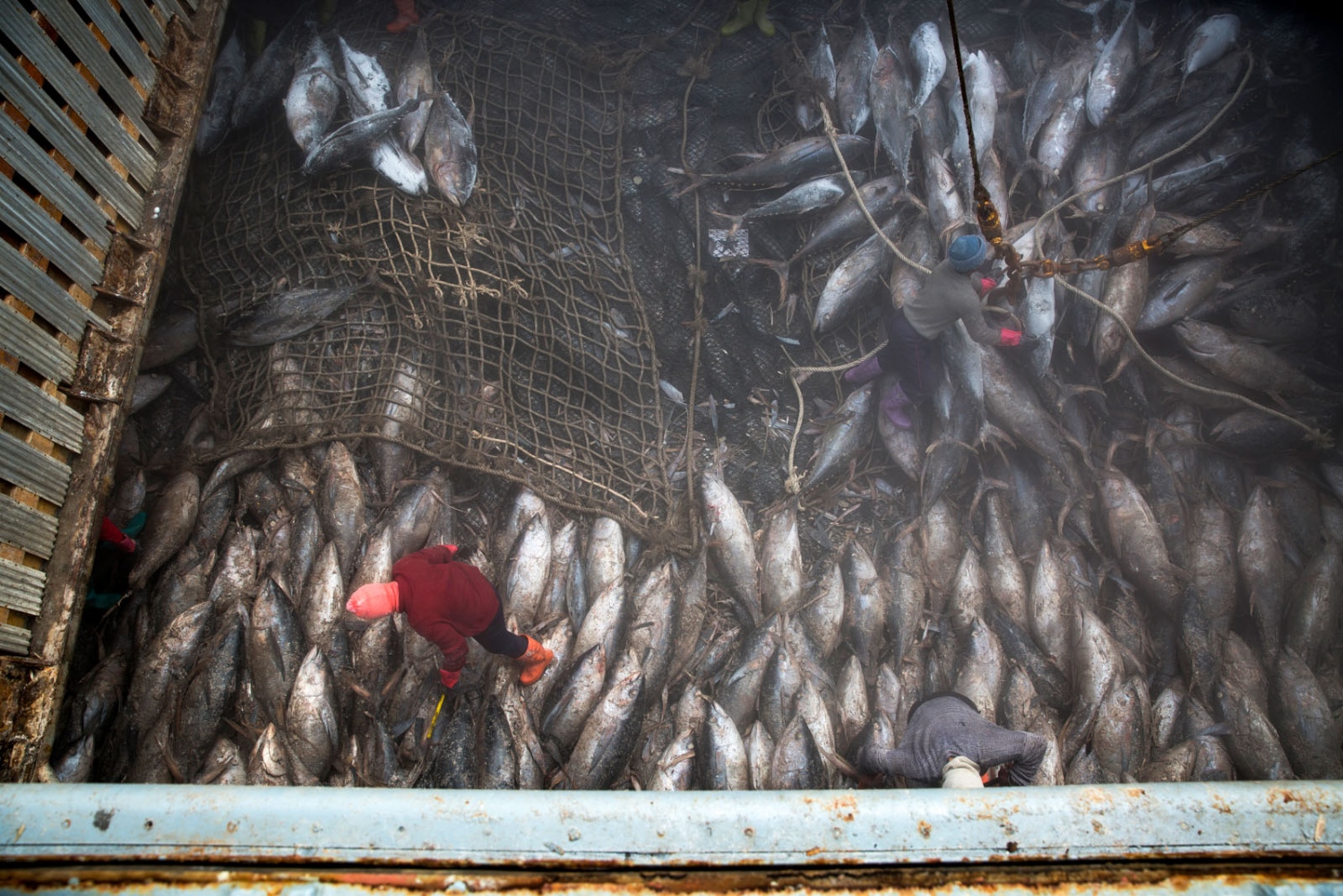
Thai workers pull tuna into nets in the hold, where the temperature is minus...
READ ON
Thai workers pull tuna into nets in the hold, where the temperature is minus 22 degrees Celsius. The large ship is docked just outside Bangkok and will spend one week unloading hundres of tonnes of tuna. Each frozen skipjack carcass weighs about 40 kilograms (88 pounds); one ton of skipjack fetches about $1,600 on the wholesale market. Samut Prakan, Thailand
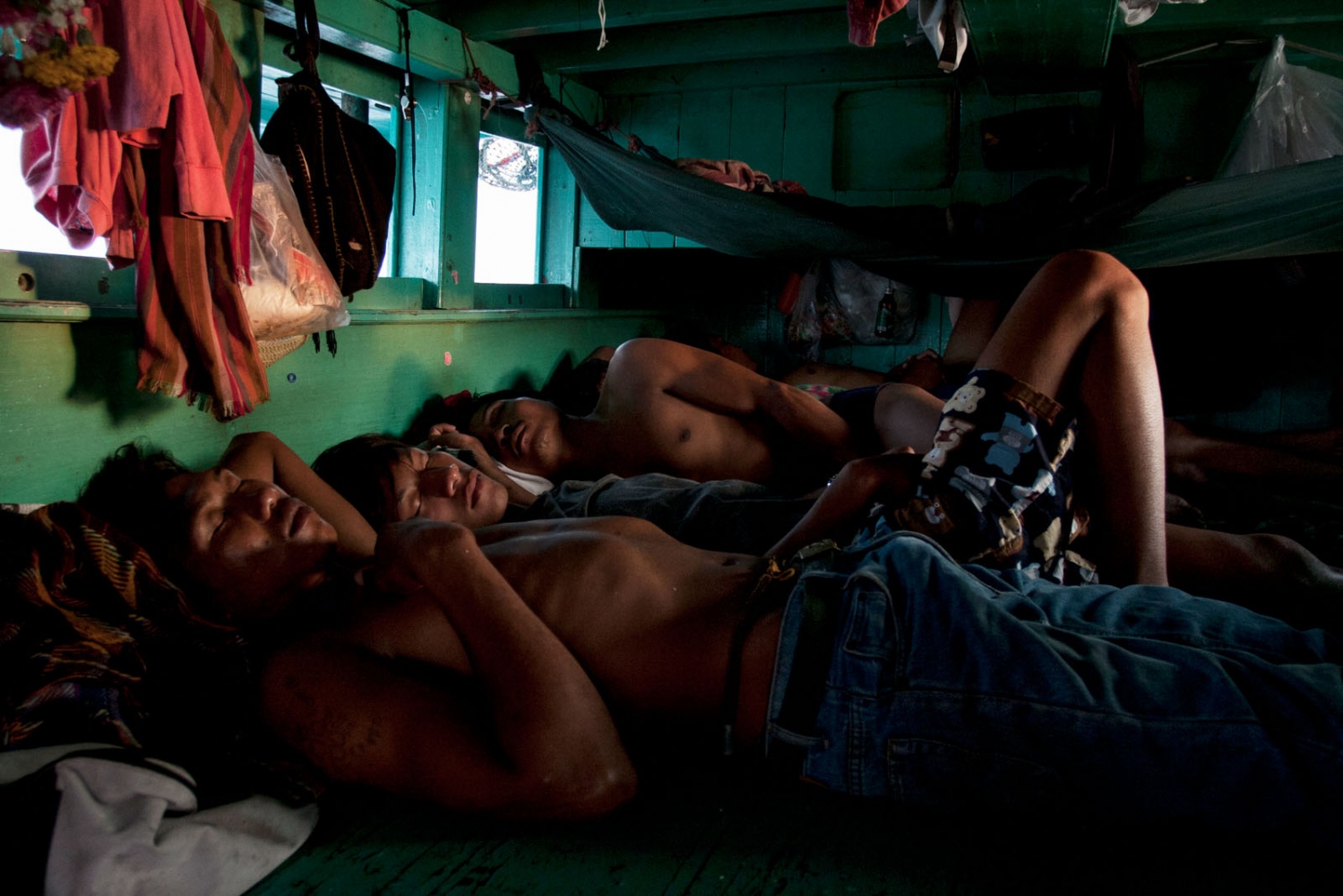
Cambodian fishermen sleep as the trawler boat returns to the shore at dawn...
READ ON
Cambodian fishermen sleep as the trawler boat returns to the shore at dawn after a night out at sea. Ang Sila, Thailand
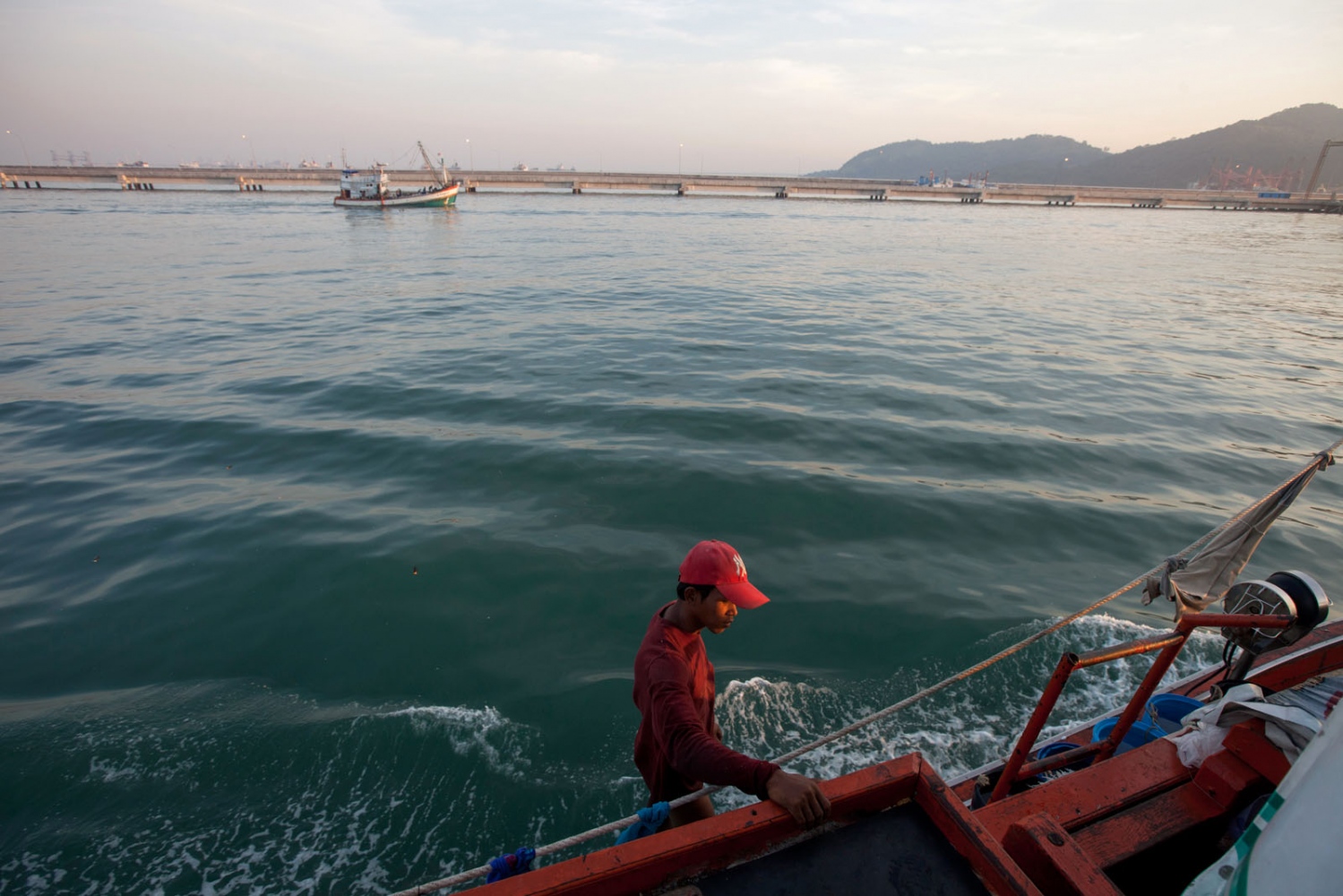
A Cambodian fisherman stands on the side of his boat as it returns to harbour...
READ ON
A Cambodian fisherman stands on the side of his boat as it returns to harbour after a night in the open ocean. Chonburi, Thailand
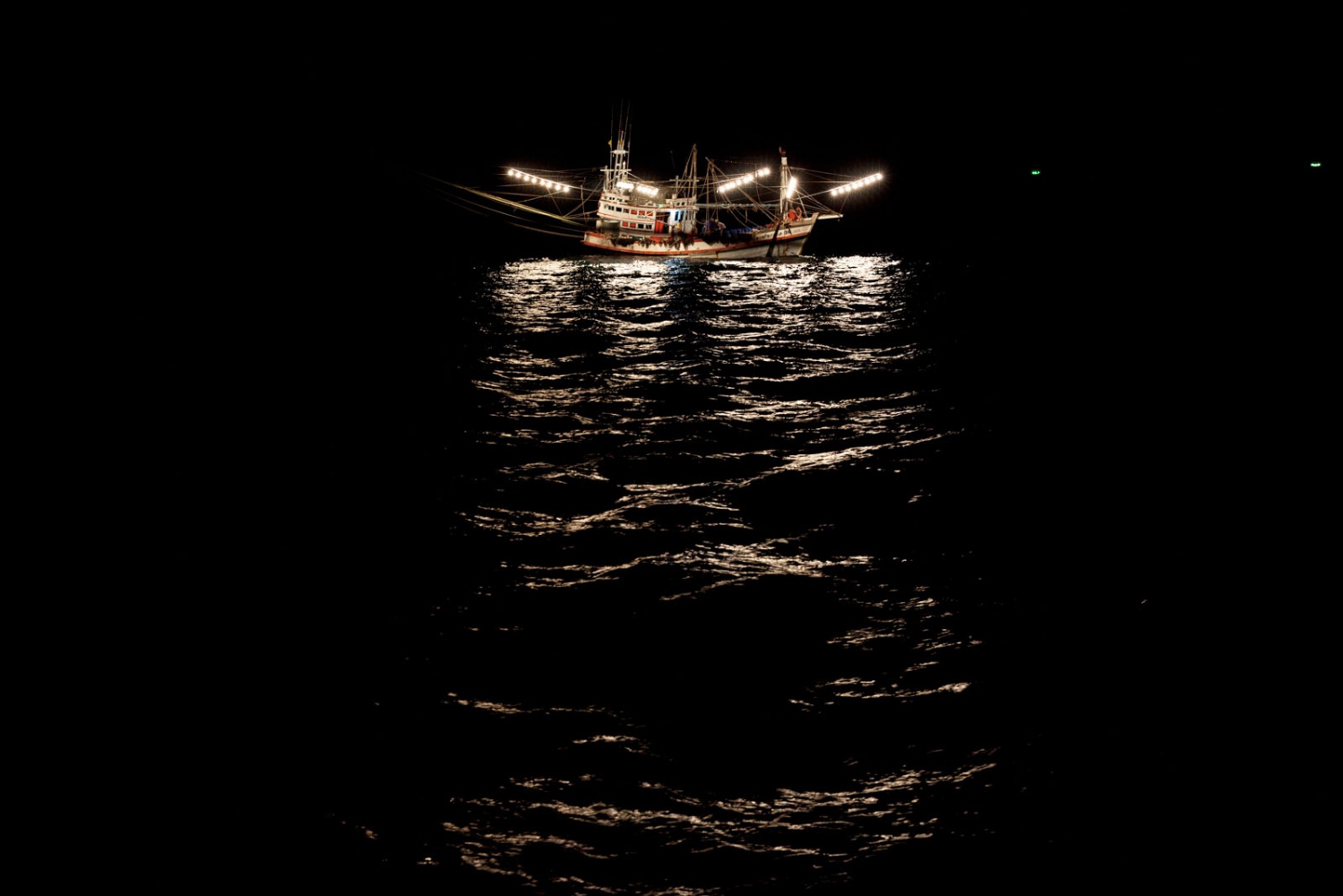
In the Gulf of Thailand a Thai fishing trawler uses lights to attract a...
READ ON
In the Gulf of Thailand a Thai fishing trawler uses lights to attract a certain type of fish to the surface before dropping the net. Phuket Island, Thailand
But not only is sea life that is at risk but also communities that have relied on fishing for centuries. These communities often fish in a sustainable way but are unable to compete and survive against larger and more technologically advanced boats that extract fish at a shocking rate. Not only is it an ecological issue but also one that is leading to the vanishing of traditions and livelihoods. Will humans be able to change their eating habits before it is too late to allow the oceans to regenerate?
Over the years I have photographed both sides of this coin, the trawlers hauling tonnes at a time and the communities that survive from them. This portfolio is a collection of those images taken in Africa and Asia.




























